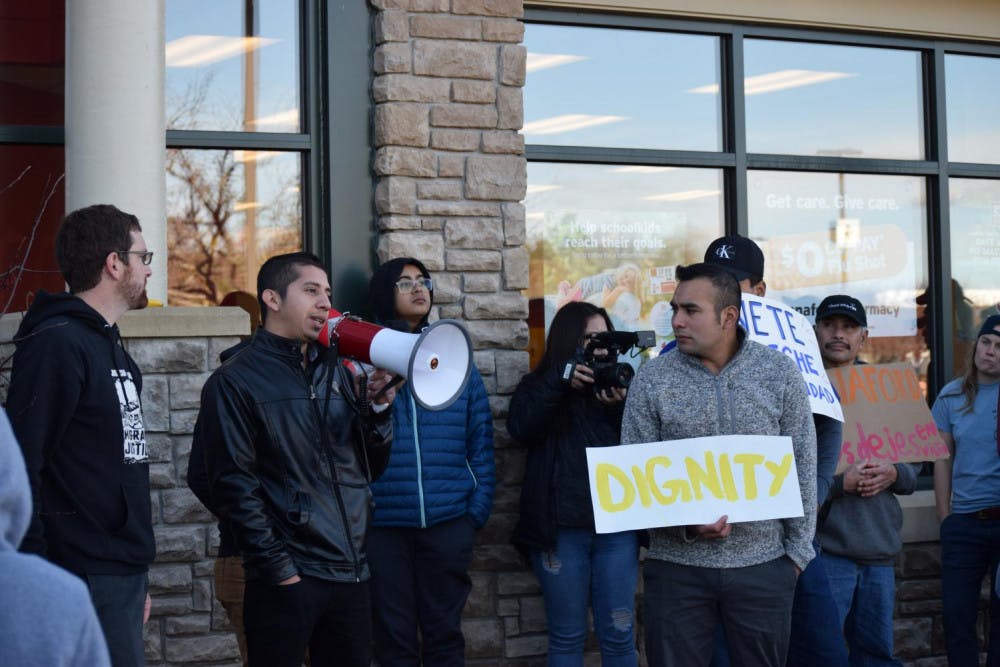The Campus reported last week that the college was collaborating with a local committee to ensure a complete headcount for the 2020 Census. The Middlebury/Addison Complete Count Committee, established last spring to directly aid the U.S. Census Bureau, is conducting similar efforts across all of Addison County.
Dana Hart, director at the Ilsley Public Library and representative on the committee, said that the committee has been meeting monthly with a Census Bureau representative.
“[The group] is sort of organized into subgroups, so we’ve all been working within our own sector to reach out to people and educate them about the census,” Hart said. “We’ve sort of taken a divide and conquer approach and then we get back together, report what we’ve been doing and brainstorm.” Vermont also has a Complete Count Committee that focuses on state-wide outreach to complete the census count.
The Census Bureau usually starts counting rural populations in Alaska at the end of January. By mid-March of the census year, most U.S. households will have received invitations to participate in the census, with information on how to do so. Each household completes one form, which includes questions about all individuals who live in the house, on April 1, Census Day. In April, trained census enumerators perform quality check interviews and — from May to July — visit houses that have not yet responded to perform in person interviews to finalize the count.
There are other processes in place for people living in U.S. territories, group quarters such as colleges and military barracks, and people living in transitory housing such as RV parks and hotels.
All staff at the Ilsley Public Library have attended census trainings, equipping them with the tools to respond to common questions from library visitors. The library will also have a computer reserved in the computer lab this month for people to fill out the questionnaire — the census is being offered online for the first time this year.
Social service organizations in the area are also coordinating to diffuse helpful info. The Counseling Services of Addison County has worked with partners including Charter House and the Addison County Community Trust to provide support in the process.
“I’m reaching out to agencies who are involved with housing […] just trying to spread the word so people see information about the census and have lots of possibilities to complete the census or get help if they need to,” said Ingrid Pixley, the housing coordinator for Counseling Services of Addison County and a representative on the Complete Count Committee. She said she sometimes finds participants mistakenly think they must share a great deal of information about themselves on the census, in part due to the thickness of the paperwork.
Distrust of the government also poses challenges to census enumeration.
“It can be difficult to persuade individuals to participate in a count of the population and to offer up information about their homes and family members if they feel suspicious about how that information could be used,” said Chris English, the assistant town manager of Middlebury and chair of the Middlebury/Addison Complete Count Committee. “By law, the Commerce Department cannot share census data with any other government agency, but mistrust can be a significant barrier to getting an accurate count.”
English mentioned that the U.S. Census Bureau has built safeguards to protect the collection process, storage of and the ability to access census data.
The government uses census data at a macro level to determine where to direct federal funding resources. The library receives federal funding based on census data through the Vermont Department of Libraries, according to Hart. Other government initiatives, including Medicare, infrastructure spending, housing assistance programs, Pell Grants, the National School Lunch Program and dozens of others use census data to allocate funds. “The census is an important, mandatory questionnaire that all Vermonters should feel safe filling out. Their data is protected and kept private,” Hart said. “Anyone who has questions can certainly stop by the library.”

Tony Sjodin ’23 is a managing editor.
He previously served as community council correspondent, senior writer, news editor and senior news editor.
Sjodin is majoring in political science with a focus on international and comparative politics. He previously held internships with the Appalachian Mountain Club's Outdoor Magazine, political campaigns in Massachusetts and Vermont, and the U.S. Embassy in Costa Rica's Environmental Hub. Outside of class, he leads kayaking and hiking trips with the Middlebury Mountain Club.




